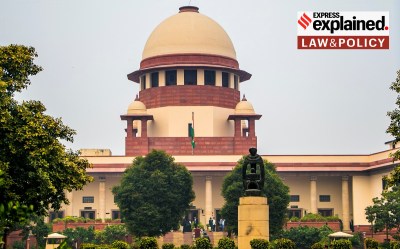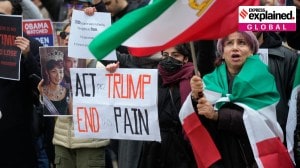Striking Question
Is the allied assault meant to protect Libyans,or to fulfil Obamas objective of ousting Gaddafi?
All the deliberations over what military action to take against Muammar Gaddafi have failed to answer the most fundamental question: Is it merely to protect the Libyan population from the government,or is it intended to fulfill President Obamas objective declared two weeks ago that Gaddafi must leave?
We are not going after Gaddafi, Vice Adm William Gortney said at the Pentagon on Sunday afternoon,even as reports from Tripoli described a loud explosion and billowing smoke at the Gaddafi compound,suggesting that military units or a command post there might have been a target.
That was a vivid sign that whatever their declared intentions,the military strikes by Britain,France and the United States that began on Saturday may threaten the government itself.
But there is also the risk that Gaddafi may not be dislodged by air power alone.
That leaves the question of whether the US and its allies are committing enough resources to win the fight. The delay in starting the onslaught complicated the path toward its end. It took 22 days from the time Gaddafis forces first opened fire on protesters in Libya for the UN-backed military assault to begin. By the time American cruise missiles reached Libyan targets on Saturday,Gaddafis troops,reinforced by mercenaries,had pushed Libyan rebels from the edge of Tripoli in western Libya all the way back to Benghazi in the east,and were on the verge of overtaking that last rebel stronghold.
But the strike,when it came,landed hard,turning the government force outside Benghazi into wreckage and encouraging the rebels to regroup.
Experts on the region,and even a few administration officials,acknowledge that the job of getting Gaddafi to step down might have been easier if the international assault had begun when rebels seemed to have held the upper hand.
For Obama,who has explicitly said that Gaddafi has lost any right to govern,the conundrum is that the UN mandate does not authorise his removal. So Obama now says the goal is limited: to use force to protect the Libyan people and allow humanitarian aid to get through.HELENE COOPER amp;
DAVID E SANGER
- 01
- 02
- 03
- 04
- 05































